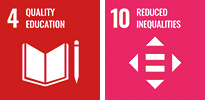
The Public Education Exchange (PEX) is a collaborative effort led by six key partners: York University, the University of Windsor, the University of Manitoba, the Canadian Teachers’ Federation, the British Columbia Teachers’ Federation, and the Canadian Centre For Policy Alternatives. Supported by a Social Sciences and Humanities Research Council (SSHRC) Partnership Development Grant, the PEX is dedicated to three primary objectives.
- Building a Pan-Canadian Network: Cultivating a network of researchers, advocates, and concerned individuals to foster connections, exchange knowledge, and address apprehensions about the privatization of public education
- Public Engagement: Facilitating critical conversations about education privatization by creating opportunities for the public to share insights and information
- Research: Investigating the influence of emergencies and protracted crises, with a specific focus on the impact of the COVID-19 pandemic, on education privatization
Beyond the integral six partner organizations, PEX is further driven by a team of researchers, including graduate students, who are dedicated to strengthening public education and exploring policy changes related to privatization initiatives across Canada. The project's website will serve as the online hub for the network and feature information and resources.
Sue Winton, the York Research Chair in Policy Analysis for Democracy and a professor in York University’s Faculty of Education, leads the PEX as project director with a wealth of expertise. Winton emphasizes the need to connect researchers, advocates, policymakers, and the public to foster dialogue and knowledge exchange. Drawing from her extensive background, which includes authoring "Unequal Benefits: Privatization and Public Education in Canada" (University of Toronto Press), her research critically examines policy advocacy, influences, and enactment. Winton envisions the PEX as more than just a website; it is a dynamic network of individuals engaging through online webinars, in-person meetings, and community-based dialogues.

Winton explains that the PEX advocates for a robust public education system that prioritizes collective benefits over individual gains. "We believe in highlighting the successes and potentials of public education while pointing out the potential damage caused by privatization policies," she says. The focus is on fostering a system that embodies equity, reflects democratic values, and prioritizes the collective well-being of society.
Privatization in and of public education is a multifaceted phenomenon that involves a shift in responsibilities from the government and the public to private actors, Winton notes. Such actors can include parents, nonprofit organizations, and businesses. Funding changes and alterations in the delivery of education that rely on private actors as well as a shift towards viewing public education as primarily a private good all broadly reflect privatization.
The inception of the PEX was not triggered by a single event, but rather by a culmination of concerns and experiences related to privatization in education. Winton's background as a policy researcher and her studies of school fundraising sparked her interest in understanding the impacts of policies that privatize public education. "The decision to pursue the PEX came from the challenges I faced accessing research on education privatization across Canada and concerns about the possibility for accelerated privatization during the COVID-19 pandemic," she explains.
The PEX secured funding from a SSHRC Partnership Development Grant in the spring of 2023, moving the project forward from a plan to a reality. The initiative is still in its early stages, with plans to build a network of collaborators, researchers, and advocates across the country.
PEX’s central aim is to engage researchers, policymakers, and the public. The initiative seeks to make research more easily available, provide policymakers with valuable insights, and involve the public in discussions about the future of public education. "It's about making information accessible to everyone and creating spaces for meaningful conversations," Winton asserts. “A challenge lies in addressing the diverse needs of these audiences and tailoring resources and events to different groups.”
As the PEX gains momentum, it recognizes the nuanced nature of education. Winton highlights that education decisions, including curriculum, policies, and funding, are deeply connected to underlying values and visions for society. "Education is shaped by various perspectives; it's a dynamic process," she notes. The PEX values diverse viewpoints and seeks to initiate inclusive conversations about how privatization impacts different groups within society. The project welcomes input from all corners, aiming for collaborative discussions that enrich understanding of the complexities surrounding education.
In addressing such diverse viewpoints, Winton acknowledges the existence of competing ideas about what is in the best interest of individuals and groups. "There are different perspectives on what's best for education," she says. “The PEX aims to offer challenges and questions to foster dialogue rather than a confrontational approach.” Winton emphasizes the importance of remaining open to different perspectives while critically examining who benefits and who loses in the context of privatization policies.
"I truly believe that by coming together and sharing our insights we can shape a future where public education remains a cornerstone of our democratic society,” she says.
Join the conversation by visiting the PEX website – your participation contributes to the realization of a resilient and inclusive public education system.
Article by Dennis Bayazitov special contributing writer.

